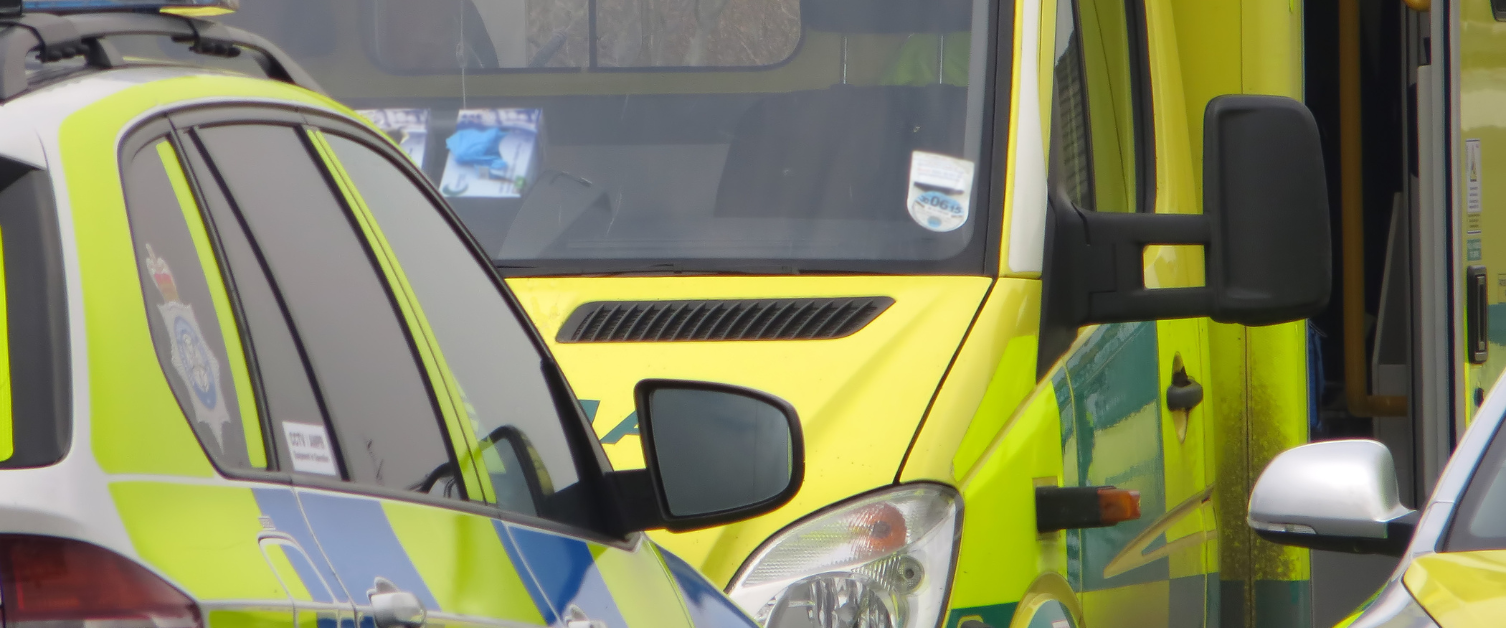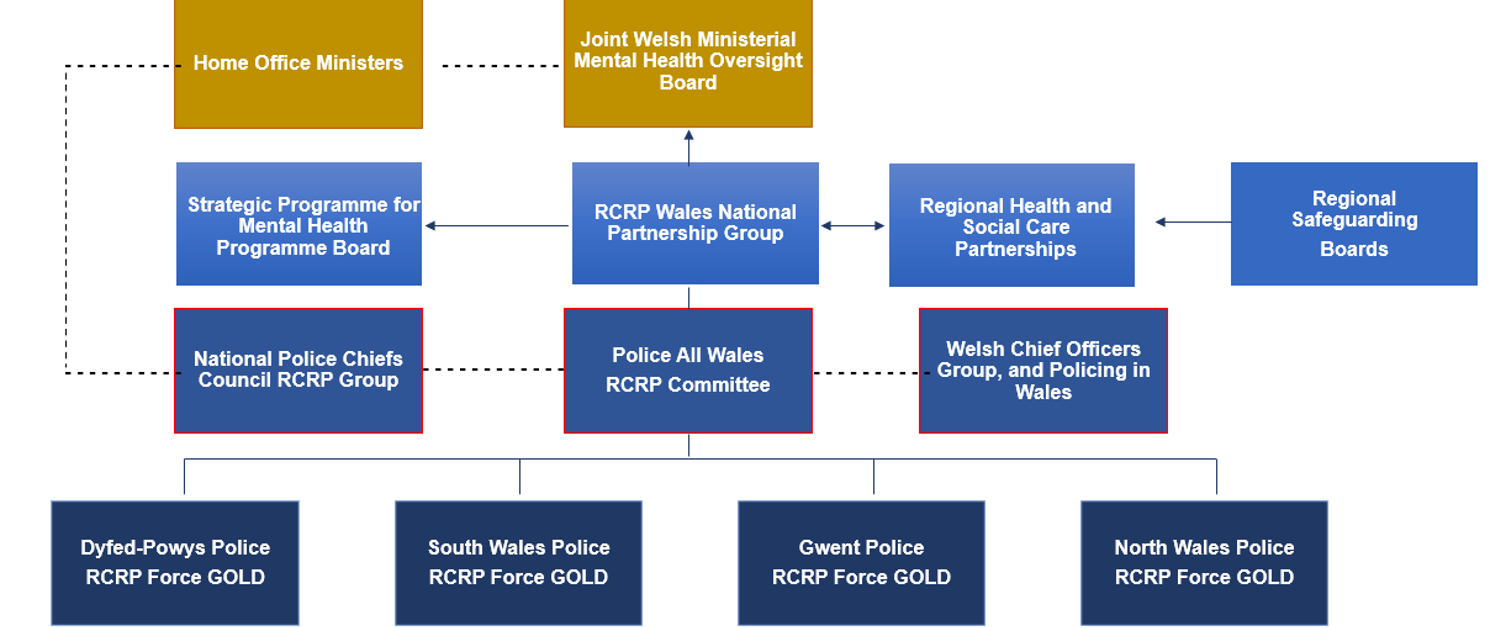An update on Right Care Right Person - ensuring individuals with health or social care needs get the right support

Introduction to the Right Care Right Person National Partnership Group
In December 2022, all chief constables in Wales and England agreed to implement the Right Care, Right Person (RCRP) approach, aimed at ensuring individuals with health or social care needs receive support from appropriately trained professionals rather than police officers, except where police have a statutory safeguarding role where an immediate risk is identified.
This phased implementation requires coordinated inter-agency planning to ensure effective local rollout.
- Key focus areas for change: Concern for welfare calls, walkouts/ absent without official leave (AWOL) patients from health facilities, transport of individuals with health needs in police vehicles, and police handovers involving Mental Health Act or voluntary patients.
- Implementation strategy: Locally determined by police forces, but reliant on collaborative national, regional, and local inter-agency planning.
For each of the phases of RCRP, a shared understanding of the aims of implementation will be agreed locally. The roles and responsibilities of each agency need to be mutually understood by setting out what we do now, what the proposed change is, and collectively understanding the impact on each partner. Planning for the changes in each phase will be data driven. All partners will provide available data to support decision making.
Governance organogram for agreed mechanism by which concerns, issues or escalations can be raised, based upon a risk assessment or occurrence of adverse incident:
 Wales Right Care Right Person Governance Organogram
Wales Right Care Right Person Governance Organogram
Current project overview
Phases 1 and 2 of the RCRP approach are now embedded in Dyfed-Powys, Gwent, and North Wales Police and South Wales Police.
These areas report reduced welfare-related demand, improved incident handling, and time savings for officers, particularly in Dyfed-Powys. Positive collaboration with health boards has emerged, especially in Phase 2, though challenges persist, such as incomplete data from partner agencies, ongoing non RCRP aligned health calls, and inconsistent local coordination.
Phase 3 is in its early stages, with some reduction in police transport in North Wales. However, all forces report poor access to integrated or automated data systems. St. John’s Ambulance transport is working better in eastern Wales but lacks reach in rural western areas. Other concerns include the delayed launch of the Mental Health Response Vehicle in North Wales, lack of ambulance staff training in Mental Capacity Act powers, and walkout incidents in Gwent being incorrectly flagged as high-risk without following policy.
Gwent and North Wales are showing innovation in Phase 4 with taxi use and home-based care, though hospital delays and prolonged officer wait times remain an issue.
- Progress: Phases 1 and 2 widely adopted; Phase 4 shows good practice in some regions.
- Challenges: Data gaps, health call misalignment, rural transport, and training needs.
- Emerging Solutions: taxi-based care, mobile apps for emergency department tracking, and inter-agency adaptation.
Welsh Ambulance Services University NHS Trust - Mental health response vehicle update
Launched in November, a significant proportion of incidents are now being effectively managed through telephone triage, reducing the need for physical deployment. However, challenges remain in relation to ambulance cancellations, hospital conveyance procedures, and variability in response times.
Additionally, finalisation of the Memorandum of Understanding is ongoing, with delays attributed to unresolved issues surrounding escalation protocols and concerns regarding staff safety, both of which are currently under review.
Transport and response developments in mental health care
A review of the Strategic Programme for Mental Health governance is in progress to reduce duplication and improve efficiency, RCRP will continue within a streamlined governance structure.
- The NHS Wales Joint Commissioning Committee (JCC) carried out a Mental Health Transport & Conveyance Review for Wales in early 2025. The slides from the resulting report are appended (including findings, recommendations and opportunities).
- The Ambulance Commissioning Team in the JCC is now taking this forward, with a meeting on 11 June to consider next steps with health boards.
- Proposals for transport models will be developed in Q2 (July–August) with testing during Q3.
- Health boards must collectively decide on the scope and resource footprint—whether national, regional, or local.
Section 136 task and finish group
An important new development is the establishment of a national task and finish Group focused on Section 136 of the Mental Health Act.
The group held its first meeting on 29 April 2025 with representatives from all four police forces, health boards, local authorities, and national bodies including JCC and Social Care Wales.
The draft purpose of the group includes:
- Understanding variation in the use and outcomes of section 136 across Wales.
- Exploring alternatives to detention while upholding legal thresholds.
- Recommending appropriate transport solutions.
- Mapping places of safety and emergency department processes, both in and out of hours.
- Aligning administrative processes across Wales to improve efficiency and consistency.
- Informing the development of acute and crisis mental health service models.
This work is being supported by the Six Goals for Emergency and Urgent Care National Programme, which has begun mapping mental health presentations to Emergency Departments. Initial process mapping will begin in the Gwent/ Aneurin Bevan UHB area in June, with other areas to follow.
Note: This update is a Right Care Right Person National Partnership Group Briefing issued in June 2025, produced by the Strategic Programme for Mental Health in NHS Wales Performance and Improvement.